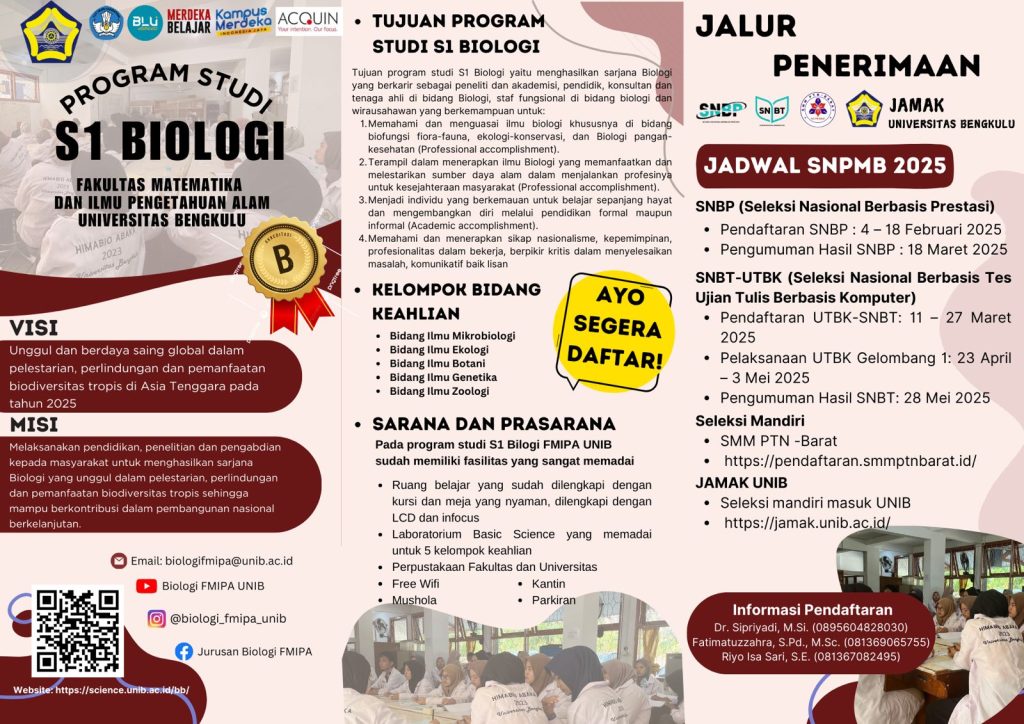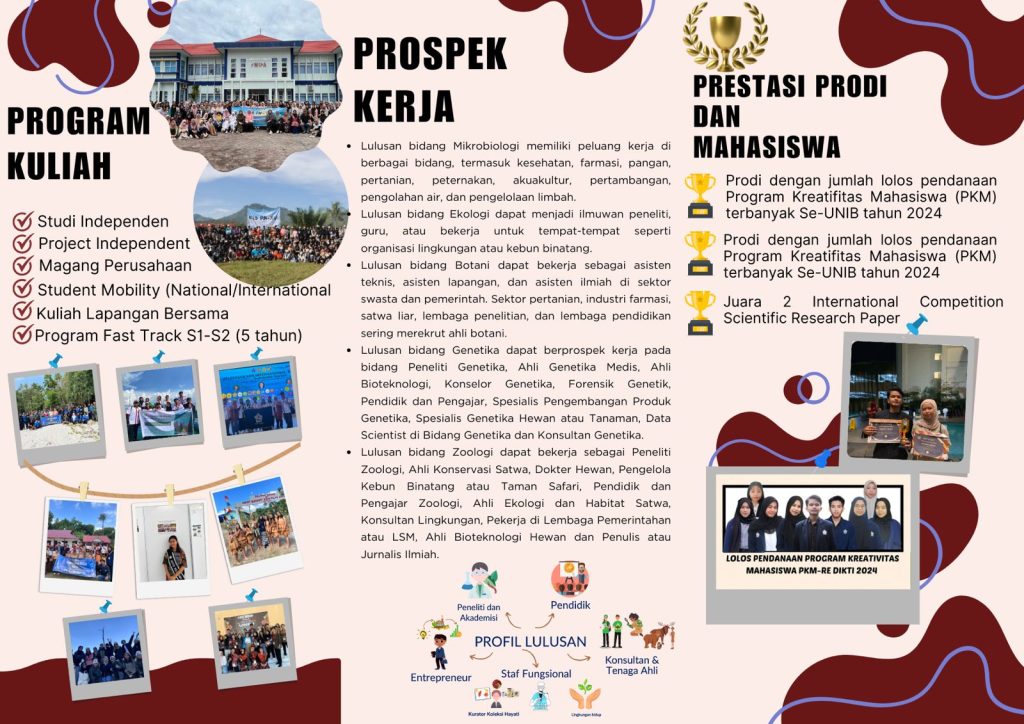
KLB PM-XVI Department of Biology UNIB: The Implementation of Biology through Biodiversity Exploration in Pelabai Village, Lebong Regency
The Department of Biology, Bengkulu University held another field study as part of an effort to strengthen students’ understanding of biodiversity and local ecosystems. This year’s routine activity took place from October 18 to 20, 2024 in Pelabai Village, Lebong District, Bengkulu Province. Pelabai Village has natural richness that includes villages, gardens, forest areas on the edge of the village, small and large streams and very humble people in the village making it an ideal location for the Biology Department’s KLB-PM observations.
The field course activities were held on the second day, October 19, 2024, involving 228 students and 10 lecturers. Before beginning observations, participants were divided into three large groups according to the field of study: Biofauna and Environment, Biopangkes (Biology of food and health), and Botanical Biofunctions. Each group had a specific focus, ranging from observing the types of fauna found around the village, studying the potential of medicinal and food plants around the village, to documenting the diversity of other interesting flora such as groups of piasang-pisangan, ferns and ethnobotany. In addition, the Biofauna group explored the types of birds, fish and other animals present around the gardens and forests on the edge of the village. With the guidance of lecturers and field assistants, each group carried out in-depth explorations according to their respective fields.
During the outdoor activities, the students trekked through the village areas, plantations, streams and forest edges to collect data and specimens. The Biofauna and Environment group, for example, managed to document the various species of insects, birds and fish that inhabit the area. The Biofauna and Environment group found a unique area, a fresh cold spring, located near the hill and community plantation. Meanwhile, the Biopangkes group recorded various local plants that have potential as traditional medicinal ingredients, such as Timun Ular Jepang, which is Latinized as Tricosanthes cucumeroides. This rarely found plant can be used as a medicinal herb, to reduce heat, improve digestion and as a naturally occurring antioxidant.
In line with the observations, this activity also involves interaction with the local community. Villagers, whose main occupation is farming, provide valuable information about the use of local plants in everyday life, such as medicinal or food ingredients. Students not only learn from the natural environment, but also expand their insights through the local knowledge of the local community.
The day was closed with a presentation of observation results from each group on the evening of the second day. Each group presented their findings and the results of their discussions with the Lecturer Mentor, including the species identified, environmental analysis, and the potential for further research development. The best group in terms of presentation and exploration results in the field will get the best appreciation and given gifts. Through this activity, students of the UNIB Biology Department not only gained direct experience in the field as biologists, but also strengthened their analytical skills and teamwork which are important provisions in academic and soft skills development.
Integrated field study is equipped with community service activities provided by a team of lecturers and students to the local community about the application of biological sciences that can be implemented in the villages and have economic value. The arrival of Biology students and lecturers in Pelabai Village is not only to explore the existing knowledge in nature and the local community to contribute science to the local community.




